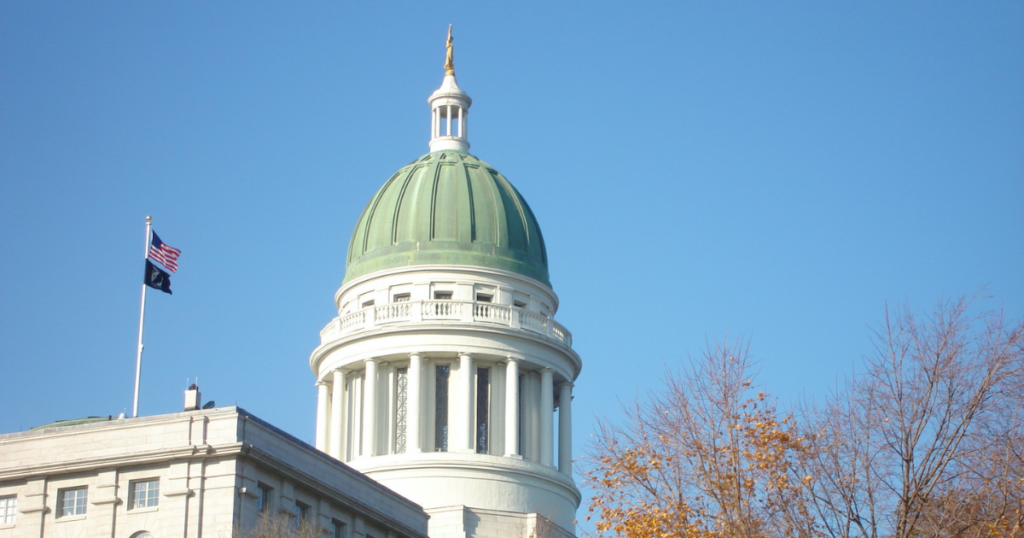Maine’s top priority for a robust, fair COVID recovery must be to provide relief to struggling families and make investments in schools, communities, infrastructure, and services that will power a sustained recovery for all Mainers.
But at a time of increased hardship for families, Maine’s business lobby — led by the Maine State Chamber of Commerce — is demanding a new state tax cut for Maine businesses that received federal grants through the Paycheck Protection Program (PPP) that would jeopardize those recovery-boosting investments.
Business expenses paid for with those grants are already tax deductible. Now, business groups are demanding that the grants not count as income on their state tax filing. This unprecedented move allows profitable companies to get a tax cut on both sides of the ledger – one for receiving the money, and another for spending it.
Maine businesses received $2.3 billion in forgivable loans through PPP, in addition to $538 million in other state-level grants. Allowing them to double-up on tax breaks for PPP funds could cost the state up to $100 million, taking critical funding away from other needs central to our COVID recovery, such as the public health response and investments in struggling schools, families, and communities.
Maine lawmakers should reject this effort to create a double tax cut for profitable businesses.
PPP was meant to protect workers’ paychecks, not give double tax cuts to profitable businesses
Congress created the Paycheck Protection Program in March 2020 to provide forgivable loans to businesses to help them keep employees on payroll, to keep money flowing to families and communities and prop up the economy during the COVID crisis.
Under the original program rules, businesses were required to spend most of the PPP loans on payroll, to prevent unemployment from spiking even higher. Congress passed changes in June 2020 to allow recipients to spend a greater portion of their loans on rent and other operating expenses.
So long as the loans were used for these allowable business expenses, the loan would be forgiven and converted to a grant.
Businesses already get a tax cut for PPP. A double tax cut is unnecessary
Grants are typically tax-neutral. They are treated as income for tax purposes but are offset by the deductible business expenses they finance. But in creating the program, Congress decided PPP loans would not count as income for federal tax purposes. To maintain tax neutrality and prevent a double benefit, the IRS created rules that barred businesses from deducting their business expenses that were financed with their tax-free PPP grant.
But after a flurry of lobbying from business lobbyists, Congress in December changed course. It voted to allow businesses to also deduct these expenses from their federal taxable income, delivering recipients a new tax cut on top of the cash payments they already received through the program. That decision effectively turned a tax-neutral program designed to protect jobs into a tax cut for businesses that received federal aid.
By allowing businesses not to claim PPP grants as income, Congress set up unfair treatment that provided special benefits for businesses not extended to workers or other recipients of federal relief.
For example, the more than 40,000 Mainers currently collecting unemployment benefits do not get a tax cut for the unemployment income they received in 2020. Similarly, education debt borrowers who had repayment put on hold by the federal government will not receive a tax break on top of that relief.
Enacting a double tax cut on PPP would cost millions at a time when Maine needs revenue to fuel the COVID recovery
Every year, Maine’s Legislature must decide whether to conform to changes to federal tax policy in its own, state-level tax law.
Gov. Janet Mills has proposed that the state treat PPP grants the same way it treats other forgiven debt: The grants would count as income, but businesses would be allowed to use expense deductions to zero out the income.
Gov. Mills’ conformity proposal is tax-neutral for businesses that received PPP grants. Still, business groups are wrongly calling the plan a “tax increase,” and pushing hard for the Legislature to reject her plan and allow them to use PPP funds to double-dip on tax cuts.
At a time of unprecedented need, a loss of $100 million in revenue from a new PPP tax cut would more than wipe out the governor’s proposed increases in spending for public health, broadband infrastructure, rate increases for health care workers, mental health and opioid response, and schools.
A tax cut for PPP benefits businesses that don’t need more aid
While PPP helped a number of small businesses in Maine, it also provided federal funding to large corporations who were able to adapt and weather the COVID crisis while still turning solid profits, including multinational corporations that do business in Maine.
A new tax break on PPP grants is poorly targeted to help the small businesses that may need additional support. By design, the tax break provides the most benefit to the large businesses who received the most in grants. Half of Maine’s PPP recipients received loans worth $9,000 on average, while the top 1 percent of recipients — representing 270 businesses, received loans worth $2 million on average.
Businesses that struggled to turn a profit, or that experienced losses, will have little tax liability to reduce in 2020, while those businesses that were still profitable have the most to gain by getting the double write off of potentially millions in PPP loans and the expenses they funded.
Instead, the double-dipping tax cut sought by business groups would deliver significant benefits for larger businesses, including legal and lobbying firms, chain car dealerships, real estate developers, and large-scale property managers. If the goal is to help struggling small businesses in Maine, this is not the solution.
Lawmakers should prioritize investing in Maine’s recovery, not double-dipping tax breaks for corporations
By rejecting Congress’s flawed approach in how the federal tax code treats PPP funds, Maine can protect available revenue so it can be put to use where it’s needed most: Funding the public health response and supporting struggling families, schools, and communities.
If the State Chamber of Commerce and its allies continue to demand a tax cut on the federal relief funds it received, lawmakers should force them to identify ways to ensure that it is targeted to businesses that need it most and to pay for this new tax cut without jeopardizing Maine’s recovery.




